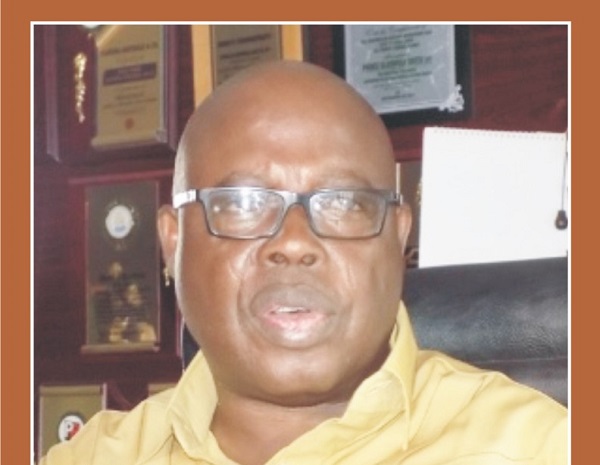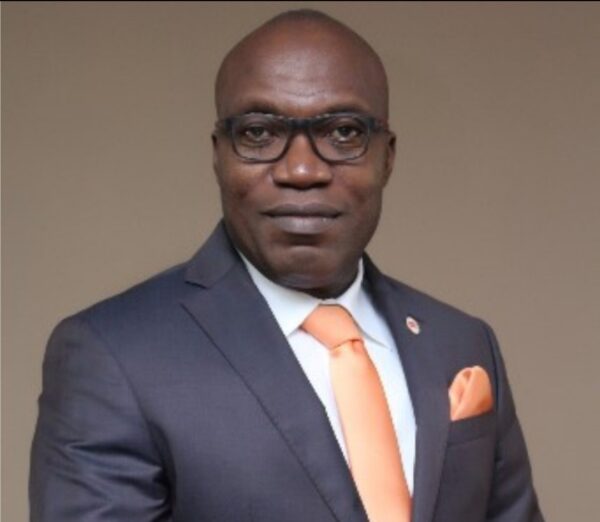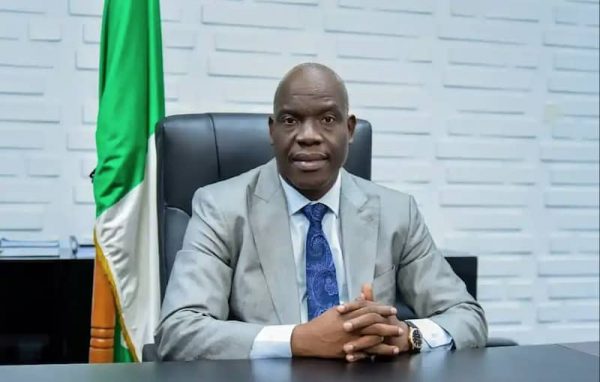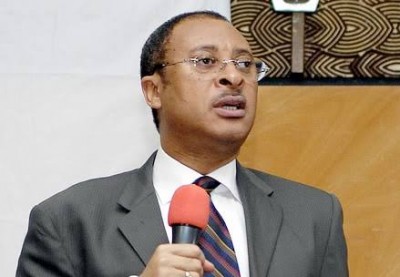Mother Vessels Reject NIMASA Certified Ships For STS – Akinpelumi
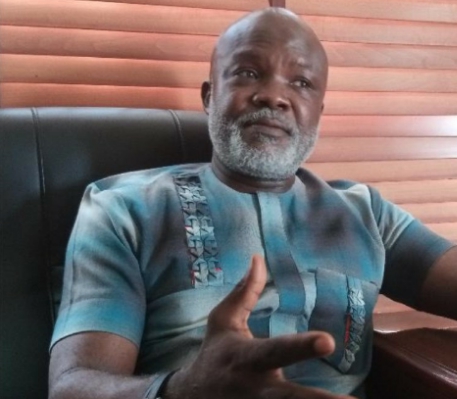
By Kenneth Jukpor
Capt. Taiwo Akinpelumi is the Chief Executive Officer, Oceanic Energy Limited. He is also a member of the Nigerian Indigenous Ship-owners Association (NISA) steering committee saddled with the onus of repositioning the association. In this interview with MMS Plus newspaper, he speaks on several pertinent shipping issues in the country, appraising the performance of Dr. Dakuku Peterside as Director General of the Nigerian Maritime Administration and Safety Agency (NIMASA) in the last four years.
Excerpts:
Given the passage of the anti-piracy law and ongoing Deep Blue Project; how would you rate the state of maritime security in Nigeria especially under Dakuku’s administration as NIMASA Director General?
I would say you can’t give credit to the administration of Dakuku for the passage of the anti-piracy law because it has been before the National Assembly for years. It was only a privilege that the bill was passed during his tenure. I have always advocated for the establishment of coastguards in Nigeria. I appreciate the fact that not all maritime nations around the world have coastguards but other nations have streamlined maritime activities such that the Navy doesn’t interfere in matters that affect commercial shipping.
In Nigeria, we are given the impression that Navy has been trained to secure both blue and brown waters. These are the rhetorics we hear all the time but the truth is that NIMASA as the flag administration hasn’t realized the enormous power it has. NIMASA can summon the Nigerian Navy and Airforce for backup but they should play the lead role. Maritime security isn’t about arms and ammunition; it is about intelligence gathering.
If a military vessel violates the coastal laws of any nation, you aren’t going to hold the military authorities responsible. It is the flag state that would be held responsible. You can find this in the provisions of the United Nations Convention on Law of the Seas (UNCLOS).
NIMASA’s approach to maritime security by establishing military organs wouldn’t help us in establishing a formidable solution that would stand the test of time. NIMASA should be allowed to send persons to be trained by the military but they should manage the security project. A situation where you have the Navy, Airforce and other security agencies involved would see each organization claiming ownership yet no one would step up to take responsibility. There would be responsibility overlap and each agency would expect the other to address the issues leaving no one to really get things done. That’s why I don’t wholeheartedly support the way NIMASA is addressing the issue of maritime security.
The military has no business setting rules and regulations that affect commercial shipping. Why should the Nigerian Navy give approvals for commercial shipping activities? Before you load a litre of crude product, you need Naval approval and this is wrong. Once someone meets the requirement of Nigerian Ports Authority (NPA) and NIMASA, your product should be loaded. The Navy got involved because of oil theft and diversion of products meant for coastal consumption to other nations. Navy was brought in to curb these practices but we have attained a level of compliance and regulation that should have seen the Navy withdraw. This interference by the Navy has become a major challenge and it is affecting coastal trade.
Recently, NIMASA launched a Maritime Action Plan on Marine Litters and Plastics pollution and also said it has begun sensitization on this with Marine Litter Marshals dispersed to clean the waterways. How would you rate this development?
I heard about this from the grapevine because NISA wasn’t invited in its capacity as an association. However, the project is laudable. Marine litters and plastics are threats to sustainable maritime environment and any sane society would have developed a strategic plan to address this menace several years ago.
Although, it is better late than never, I hope this isn’t propaganda by NIMASA but a genuine intention to address the menace of pollution. The core responsibility of a flag state is regulatory, pollution prevention and all that.
The situation of our waters is still a shame. There are dirts everywhere but with this initiative we should begin to see things unfold leading to cleaner waters.
Now that the current administration at NIMASA has come to an end, we hope the new one builds on this laudable project. At NISA, our interest is to support whatever administration has the interest of stakeholders at heart. The interest of stakeholders is what the regulatory agencies need to prioritize to succeed.
On maritime administration, Dakuku has said that NIMASA is currently the best administration in Africa and the Abuja MoU also rated NIMASA as number one in the continent. What do you make of these reports?
These reports are very incorrect. How can NIMASA say it is the best flag administration in Africa? There are better countries in terms of flag state control and enforcement. In Nigeria, people just procure certificates. Vessels aren’t seaworthy yet they get NIMASA certificates. This explains why international ships don’t allow NIMASA certified vessels to come alongside them for ship to ship (STS) transfer. If NIMASA was the best flag administration in Africa nothing of such would happen. Most vessels certified by NIMASA are rejected by mother vessels.
On the aspect of flag state coastal responsibilities, foreign vessels visit Nigerian waters from around the world. Those of us who have boarded vessels know how other administrators board vessels and do inspections; NIMASA inspectors always come onboard to say what do you have for us? Any ship coming to Nigeria would have to give NIMASA officials can drinks, cigarettes and envelopes with money. NIMASA officials aren’t really out to perform flag state responsibilities.
How many competent surveyors are even in NIMASA to undertake this responsibility? What are the parameters for saying NIMASA is the best flag state in Africa? It is very disrespectful for the NIMASA Director General to assemble stakeholders and technocrats and be telling us lies to our faces. He was insulting our sensibilities with these reports.
The capacity of your seafarers also goes a long way to actually demonstrate if you are the best flag state in Africa. On certification, I belong to a platform where the issue of training, watch-keeping and certification is a big issue. NIMASA can’t be using analog procedures in these areas and claim to be the best in Africa. These are fallacies.
Do your findings to know which cadre Abuja MoU belongs across the world. What flag state or port state responsibilities have NIMASA done to deserve this rating as the best in Africa?
Beyond sentiments, we have been admonishing NIMASA to look out for people with the capacity to train surveyors with the technical know-how and good reflexes. These are issues that could translate into Nigeria entering the Category C of the Governing Council of International Maritime Organization (IMO).
Last year, Nigerian ship-owners floated the idea of establishing a Protection and Indemnity (P&I) club. What’s the latest development on this?
The plans to float a P&I club in Nigeria is still on stream. It has my backing and support because I understand that this will go a long way to curb capital flight which goes to foreign P&Is. It is a laudable project and it would unify Nigerian ship-owners as we establish a club to mitigate our losses. We want to pull resources into a common fund so that if one of us has fiscal issues, he could pull from the fund. This has to be stakeholders driven. At one of the inaugural meetings, we agreed that NIMASA has no business superintending such initiative. NIMASA isn’t going to chair it; rather one of the ship-owners would do that.
The project is the baby of ship-owners. We have gotten to a stage where we want to see how a consultant could develop a draft feasibility study. This would take into cognizance the economic viability of such project.
The issue of extra war risk insurance and numerous charges on ships heading to Nigeria remains a fiscal burden on the nation. Although these security threats persist, can we review these charges to be moderate and reflect the true situation in Nigeria?
The truth is that war risk insurance isn’t something we can dismiss by fiat. It is something that regulates trading limits. If you know that when your ship goes into a particular area, it would be in a hotspot for sea robbery, piracy and hijacking, you would be weary to send your vessels to those locations. However, most times these activities are exaggerated.
What we have to do is to get our acts together in terms of our approach to anti-piracy activities. It is a good thing that the Suppression of Piracy and Other Maritime Offences (SPOMO) Act is in place. The next step would be to strengthen the maritime security so that the Nigerian waters are no longer seen as hotspot for piracy and other criminal activities. When this is achieved, war risk insurance premiums wouldn’t be applicable to foreign ships coming into the country. Any area that is relatively calm wouldn’t suffer war risk levies.
Nevertheless, Nigeria needs to project its image because these reports of piracy and sea robbery are being exaggerated. How many times have we heard that pirates kidnap people offshore Lagos or that vessels were attacked offshore Lagos? It isn’t common because there are areas that aren’t flashpoints yet ships still pay premiums for war risk insurance to come into Lagos. So, it shows that we need to better project the nation’s image and make our submission to the relevant international bodies to correct this trend.
On the disbursement of Cabotage Vessel Finance Fund (CVFF), the 2007 Revised CVFF Guidelines found in NIMASA Act 2007, Section 3.2 (VII) states that beneficiaries should not get more than $25million and that’s a small amount compared to the sum needed to purchase ships. Is there a need to review this aspect of the Act?
We are talking of the Act established since 2003. Has there been any disbursement since that time? You can’t interrogate the effectiveness of a law until it is put to use. Should we be talking about the money being too small when we haven’t gotten a dime from it? Let it be disbursed first.
For instance, if an individual gets $25million, he or she can source additional fund to buy a ship and operate it efficiently; that person is on the path to keep increasing his or her fleet. The intendment of the act isn’t to fund your business 100% but to subsidize it. The essence is to assist you when you’re having cashflow problems. So, I don’t think we should be looking at $25million as too small at the moment.
The place I think requires a review is where they said an individual or group still gets $25million. I think if an individual can get $25million, a group should be entitled to more, at least $100million.
NIMASA set up a committee to review the nation’s ship registry and appointed the Committee Chairman and a team to implement. How would you rate the Nigerian ship registry at the moment and the activities of that committee?
I am aware that there have been efforts to streamline Nigeria’s ship registry. They want to make it automated so that people can register online and enjoy other benefits of a digital world.
I want to see a NIMASA that works and gets things done this way with just the click of a button. It doesn’t have to be through politicking or be sentimental. You need qualified people to handle this responsibility.
For instance, asking the people who came up with the recommendations to go back to implement them isn’t appropriate. I think they should get another platform or get a new set of people to do the implementation. That would ensure the recommendations are effectively implemented.
I’m not abreast of the developments of this committee but we need to improve the Nigerian ship registry and get more stakeholders involved these processes.



